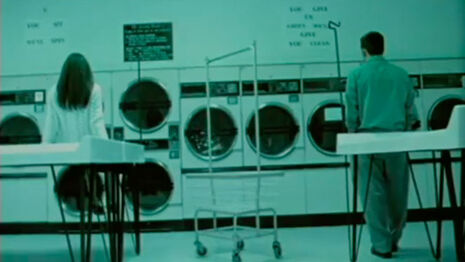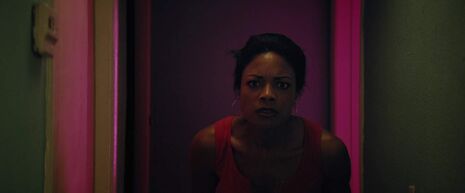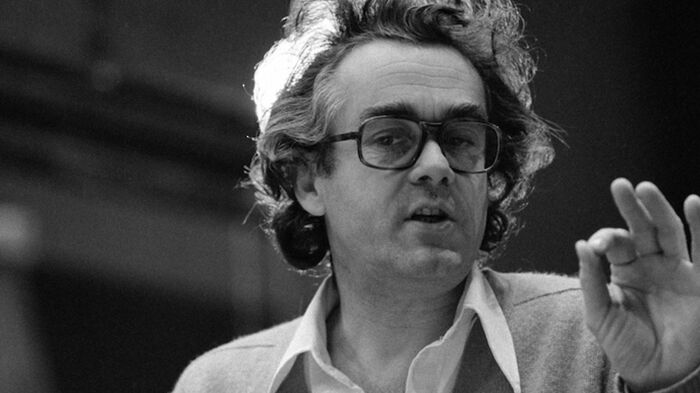Portrait of an artist: Barry Jenkins
Considering the influences of the Moonlight director’s short films on his first features, Orla Horan highlights the career of the most exciting filmmaker working today.

I usually live by the logic that you can never get too much of a good thing, be it cheesy chips, ASOS next day delivery, or Gemma Collins-related content. That is until I saw Moonlight, directed by Barry Jenkins, this time two years ago and realised that some things are good enough for once in a lifetime. I distinctly remember sitting in the cinema in stunned silence as the credits were rolling, my (small) brain struggling to comprehend how a film which charts the coming-of-age of Chiron managed to be so understated yet utterly mesmerising.
Although I have technically stayed true to my word and kept Moonlight as a perfect one-off experience, I have cheated somewhat by watching all of Jenkins’s short films in the interim. They reveal that all the hallmarks of his distinctive approach to filmmaking have been present and correct since circa 2003 when Jenkins produced his first short, My Josephine, about a young Arab-American couple who own a launderette and wash flags for free in post-9/11 US.
Indeed, running through Jenkins’s entire oeuvre is the theme of love – not the fairytale version but the real deal, as demonstrated in A Young Couple: “Of course I like you, I just don’t like you when you’re being annoying.” Jenkins’s take on love is always grounded, making little use of dialogue and instead showing passion by gestures; we see couples working at desks in adjoining rooms in A Young Couple, play-fighting with umbrellas in Tall Enough, and sharing a meal together in Moonlight. That is not to say that everything is rosy. In Chlorophyl, Jenkins shows the reality of unrequited love as we see the protagonist having a debrief with her friends after going to a club and seeing her love interest someone else.
It is undeniable that Jenkins’s focus is on romances that do not often make it to the silver screen; he has described his latest film, If Beale Street Could Talk, as a “black love story”, and the same is true of Moonlight. Despite not being about a young black couple, both My Josephine and Tall Enough, centred around an interracial couple, demonstrate that the director of Moonlight wants to spotlight the love stories Hollywood has often ignored. Jenkins broaches these stories with the utmost subtlety; his efforts in Little Brown Boy, in which the protagonist is involved in a shooting, and his nuanced presentation of Juan (Mahershala Ali) in Moonlight, a kindly drug dealer and father figure to Chiron, shows that Jenkins does not deal in black-and-white characterisation.

You do not have to look hard to find that behind most of these narratives is a deeper social commentary. This is perhaps most obvious in Moonlight since it shows those who reap the rewards of drug addiction and those who pay the price for their addiction. We are also shown how young black men are often treated by the criminal justice system, whether they have actually been involved in a crime, as in Little Brown Boy, and when they have not, as in If Beale Street Could Talk.
There is also technical consistency throughout Jenkins’s career, such as his choppy and colourful cinematography. In A Young Couple, the camera angles are often cropped tightly around faces, cutting out abruptly and changing focus as we watch the real-life pair simply exist together. We see a similarly punctuated approach to transitions in My Josephine, where shots change abruptly as the couple carry out their various tasks. That Jenkins admits to being inspired in part by the transitions in Nigella Lawson’s cooking programmes only enhances my appreciation for his work.
Jenkins also makes consistent use of changing focus as shots accentuate the features of the young couple only to blur them as they dance in the launderette in My Josephine and embrace each other in A Young Couple. In the former, most of the footage is tinted with green-blue hues due to a happy accident in production. It does not seem like a coincidence that Jenkins, who has a long-term working relationship with cinematographer James Laxton, was emboldened to use colour so artfully in Moonlight – a particularly striking example being the scene in which Chiron is yelled at by his mother (Naomie Harris) whilst bathed in pink light.
Whenever you are in awe of an artist, be it Van Gogh, Plath, or Bowie, there is something incredibly satisfying about looking at their entire body of work and tracing their progression. For the artists themselves, their early works are the foundation on which later success is built; it is no coincidence that Jenkins has remarked that his favourite film is My Josephine, and that it was an experience more lifechanging for him than his Oscar win. This is why it so important not only to engage with short films made by now-successful filmmakers such as Jenkins, but also to support those who are rising stars. The Watersprite International Student Film Festival, which showcases short films from around the world, held in Cambridge from 7-10 March is a chance to do just that.
 News / Cambridge academics stand out in King’s 2026 Honours List2 January 2026
News / Cambridge academics stand out in King’s 2026 Honours List2 January 2026 Interviews / You don’t need to peak at Cambridge, says Robin Harding31 December 2025
Interviews / You don’t need to peak at Cambridge, says Robin Harding31 December 2025 Comment / What happened to men at Cambridge?31 December 2025
Comment / What happened to men at Cambridge?31 December 2025 News / Varsity’s biggest stories of 202531 December 2025
News / Varsity’s biggest stories of 202531 December 2025 Features / “It’s a momentary expression of rage”: reforming democracy from Cambridge4 January 2026
Features / “It’s a momentary expression of rage”: reforming democracy from Cambridge4 January 2026










